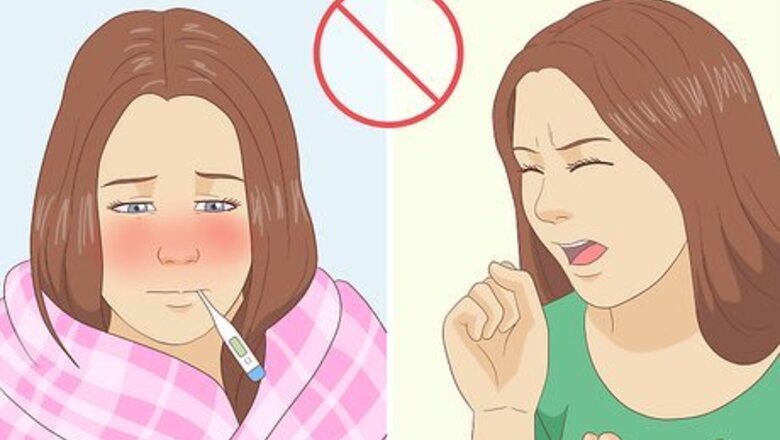
views
X
Trustworthy Source
World Health Organization
Health information and news provided by the World Health Organization
Go to source
Unfortunately, having COVID-19 asymptomatically is still uncharted territory for medical professionals, since asymptomatic cases are really difficult to keep track of.[2]
X
Trustworthy Source
PubMed Central
Journal archive from the U.S. National Institutes of Health
Go to source
While there are still many new studies developing, you can stay prepared by reviewing what the medical community knows so far.
The Basics
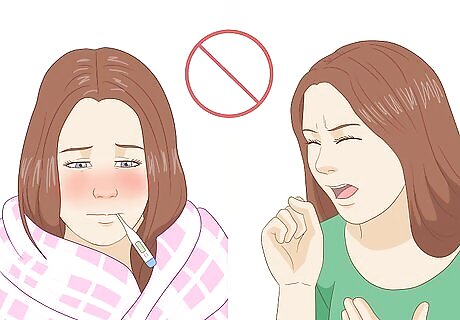
What is an asymptomatic case of COVID-19? An asymptomatic carrier is a person who tests positive for COVID-19 but doesn't show any symptoms. These types of cases aren’t unique to just COVID-19. In fact, most infectious illnesses will have asymptomatic carriers, whether it’s the flu or a more outdated illness, like typhoid fever.
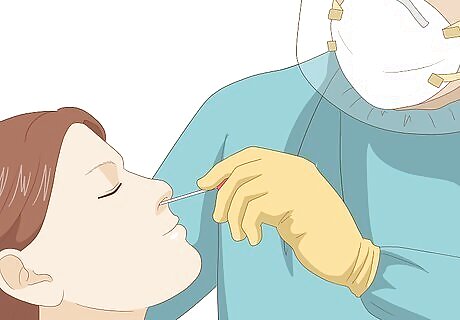
How do you know if you’re asymptomatic? As an asymptomatic carrier, you won’t show visible symptoms of the illness. With this in mind, you’ll have to visit a healthcare provider and get tested, which will let you know if you’ve contracted the virus or not.
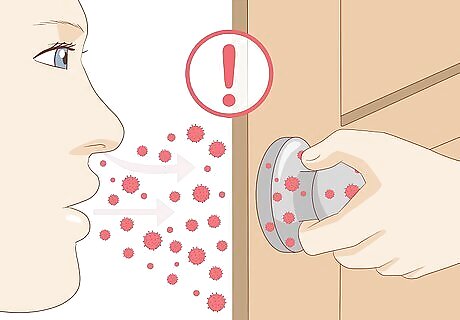
How do asymptomatic carriers spread the virus? Asymptomatic carriers spread COVID-19 as they breathe and release droplets into the air. Depending on the situation, a single breath may carry the virus for over 2 ft (0.61 m). Additionally, asymptomatic carriers can transmit the virus by touching a common surface, like a doorknob. Since the virus is carried through droplets, carriers can protect others by wearing a mask.
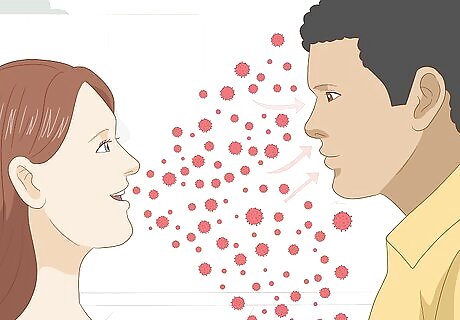
Are asymptomatic carriers contagious? This question is still being studied in-depth by the medical community, but the tentative answer right now is yes. Recently, a study in South Korea showed that asymptomatic carriers have just as much of the virus in their lungs, nose, and throat as symptomatic carriers do. Unfortunately, there are still a lot of unanswered questions in the scientific community about how often asymptomatic carriers spread the virus.
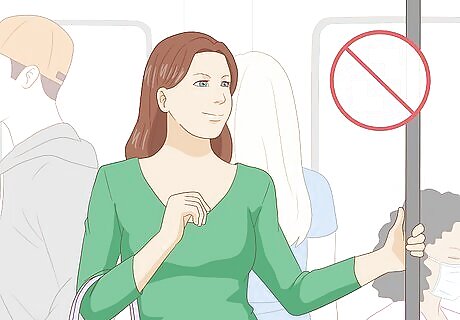
Can you go outside if you’re asymptomatic? No. Even if you feel fine, you’re still at risk of passing the virus to the people around you. Rest and recover at home for 10 days, which should give your body enough time to beat the illness. After this 10-day period, ask your doctor if you need to get re-tested for COVID-19 as an extra precaution. If you’ve come in contact with your friends and family as an asymptomatic carrier, encourage them to quarantine themselves at home for 2 weeks, just to be safe.
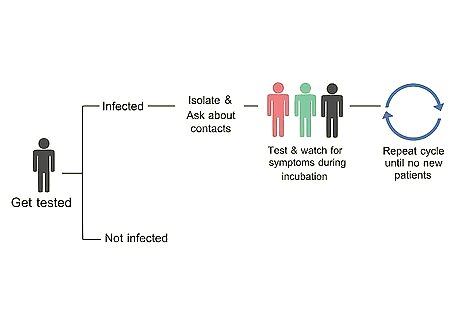
How do you track the asymptomatic spread of COVID-19? It’s difficult to track how far the virus spreads via asymptomatic people, especially since they show no signs of symptoms. With this in mind, try to follow basic precautions, like social distancing, wearing a face covering when you go out and about, disinfecting commonly used surfaces, washing your hands frequently, and covering your coughs and sneezes.
Understanding the Risks of Asymptomatic Carriers
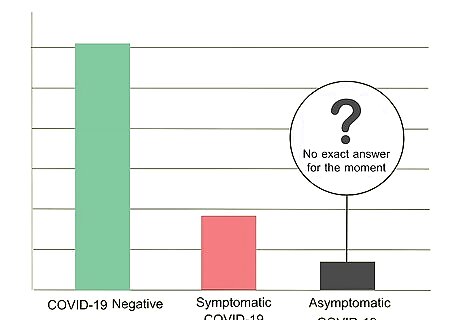
How many people are asymptomatic carriers? There currently isn’t an exact answer at the moment. A variety of studies in different places report different answers. For instance, a small study in Boston showed that 36% percent of a group of homeless people tested positive for COVID-19, but all of them were asymptomatic. Additionally, in a group of Japanese citizens who had all tested positive for COVID-19, around 30% of them didn’t display any symptoms.
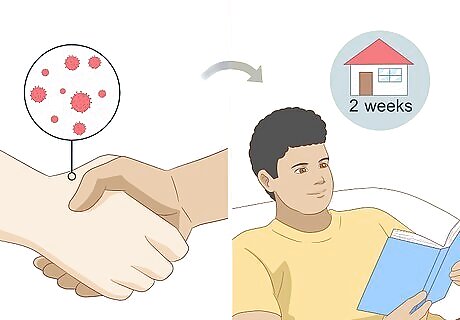
What should you do if you come in contact with an asymptomatic carrier? Stay at home for 2 weeks, just in case you’ve contracted the virus from another person. Though it may seem excessive, quarantining will prevent you from spreading anything to others on the off-chance that you end up coming down with COVID-19.
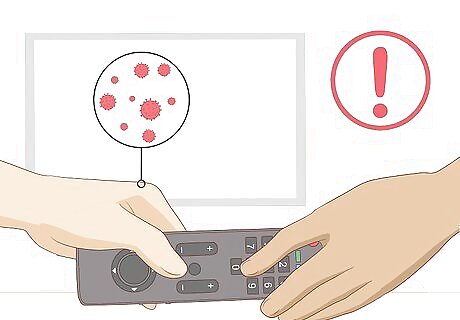
Can you get COVID-19 by living with an asymptomatic carrier? Studies show that asymptomatic carriers can spread the virus to different items in a room, which may lead to other household members getting sick after touching something contaminated. If someone you live with has COVID-19, wash your hands frequently and try to keep a distance from them whenever possible. Additionally, disinfect any common surfaces as often as possible, like furniture, countertops, or tables.
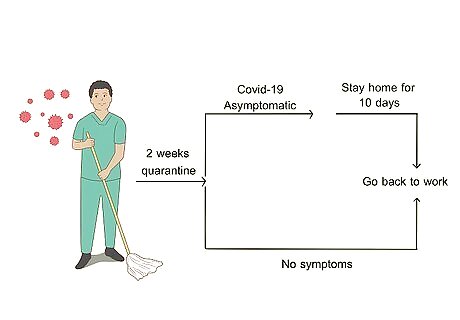
What should you do with an essential employee that has been exposed to the coronavirus disease but has no symptoms? Tell the employee to quarantine themselves at home for 2 weeks to make sure they don’t have any symptoms. If they still don’t have any symptoms after the quarantine, allow them to return to work. If they tested positive for COVID-19 but are asymptomatic, require the employee to stay home for 10 days before returning to work. In general, try including safe practices around the workplace, like checking your employees’ temperatures before a shift and disinfecting common surfaces frequently.
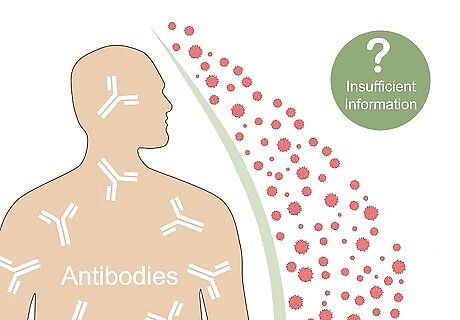
Are you immune to COVID-19 if you have antibodies in your blood? There isn’t enough information available right now to say for sure. Professionals in the medical community are still researching the potential benefits of antibodies, and are looking for more evidence that antibodies provide extra protection. In the meantime, keep taking the same precautions that you would normally, like washing your hands a lot, wearing a mask when you’re out and about, and maintaining normal social distancing measures.




















Comments
0 comment